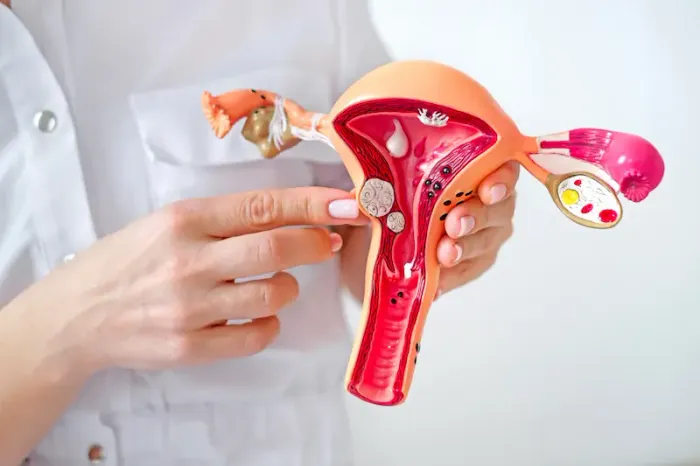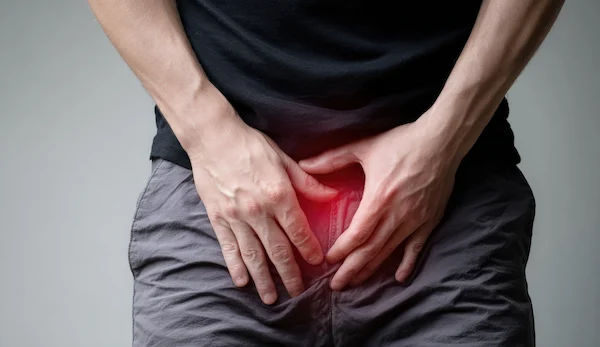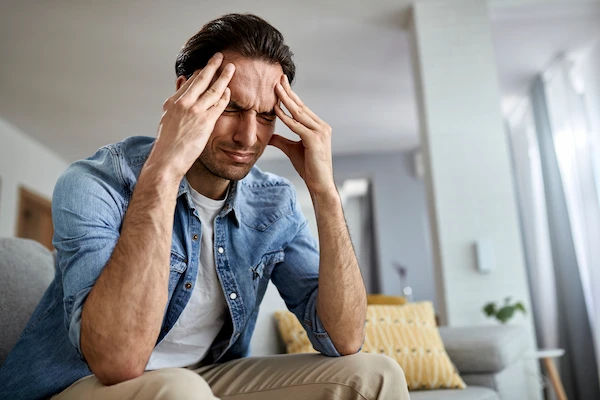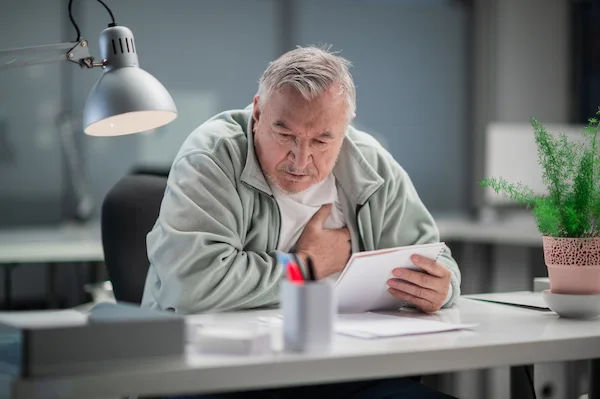Uterine Fibroids: Overview of Symptoms and Treatments
Learn about uterine fibroids, their symptoms, causes, diagnosis, and treatment options. Get expert tips on managing fibroid-related discomfort and improving quality of life.


Introduction
Uterine fibroids are a common health concern for many women, but they often go undiagnosed because symptoms can be mild or mistaken for other conditions. If you or someone you know is dealing with heavy periods, pelvic pain, or discomfort, it might be worth learning more about fibroids. This article will help you understand what uterine fibroids are, their symptoms, causes, and the best ways to manage them.
What Are Uterine Fibroids?
Uterine fibroids are non-cancerous growths that develop in or around the uterus (womb). They are made of muscle and fibrous tissue and can vary in size; from tiny (like a seed) to large (like a grapefruit). While they are usually harmless, they can cause discomfort and complications in some cases.
Who Gets Fibroids?
Most common in women aged 30–50.
More likely in women with a family history of fibroids.
African-American women are at a higher risk.
Obesity and hormonal imbalances may increase the chances of developing fibroids.
Common Symptoms of Uterine Fibroids
Many women with fibroids don’t experience any symptoms, but when they do, they may include:
Heavy or prolonged periods (menorrhagia)
Pelvic pain or pressure
Frequent urination (if fibroids press on the bladder)
Constipation or bloating (if fibroids press on the rectum)
Lower back pain
Pain during intercourse
Difficulty getting pregnant (in some cases)
If you notice any of these symptoms, it’s best to consult a doctor for proper diagnosis and treatment.
What Causes Uterine Fibroids?
The exact cause is unknown, but several factors contribute to their growth:
Hormones (Estrogen & Progesterone): These hormones stimulate fibroid growth, which is why fibroids often shrink after menopause.
Genetics: If your mother or sister had fibroids, you may be more likely to develop them.
Other Factors: Obesity, vitamin D deficiency, and a diet high in red meat may increase the risk.
How Are Fibroids Diagnosed?
If your doctor suspects fibroids, they may recommend:
1. Pelvic Exam – To check for any unusual lumps.
2. Ultrasound – To get a clear image of the uterus.
3. MRI or CT Scan – For more detailed imaging (if needed).
4. Hysteroscopy – A thin tube with a camera is inserted into the uterus to examine fibroids.
Treatment Options for Uterine Fibroids
Treatment depends on the size, location, and severity of symptoms. Options include:
1. Medications
Pain Relievers (like ibuprofen) for cramps.
Hormonal Therapy (birth control pills, IUDs) to regulate heavy bleeding.
GnRH Agonists (temporarily shrink fibroids before surgery).
2. Non-Surgical Procedures
Uterine Artery Embolization (UAE): Blocks blood flow to fibroids, shrinking them.
MRI-Guided Focused Ultrasound: Uses sound waves to destroy fibroids.
Consult Top Specialists for Personalised Tips
3. Surgical Options
Myomectomy: Removes fibroids while keeping the uterus intact (good for women who want to conceive).
Hysterectomy: Removes the uterus (only considered if fibroids are severe and pregnancy is not desired).
Lifestyle & Home Remedies
While medical treatments are effective, some lifestyle changes can help manage symptoms:
Eat a Balanced Diet: Include iron-rich foods (spinach, lentils) if you have heavy bleeding.
Exercise Regularly: Helps maintain a healthy weight, which may reduce fibroid growth.
Manage Stress: Yoga and meditation can help with pain and discomfort.
Limit Red Meat & Processed Foods: These may worsen fibroid symptoms.
When to See a Doctor?
If you experience:
Extremely heavy periods with clots
Severe pelvic pain
Frequent urination or difficulty emptying the bladder
Unexplained weight gain or bloating
It’s important to seek medical advice. Early diagnosis can prevent complications.
Can Fibroids Be Prevented?
There’s no sure way to prevent fibroids, but you can lower your risk by:
Maintaining a healthy weight
Eating more fruits, vegetables, and whole grains
Avoiding excessive alcohol and caffeine
Final Thoughts
Uterine fibroids are common but manageable. If you suspect you have fibroids, don’t ignore the symptoms; early treatment can improve your quality of life.
Need Expert Advice?
If you're experiencing symptoms or want to discuss treatment options, you can book a consultation with a gynecologist on Apollo 24|7. Early diagnosis and care can make a big difference!
Consult Top Specialists for Personalised Tips

Dr. Mona Yadav
Obstetrician and Gynaecologist
19 Years • MBBS, MD (Obstetrics & Gynaecology)
Dombivli
Nulife multispeciality, Dombivli

Dr. Parul Sharma
Obstetrician and Gynaecologist
8 Years • MBBS, MS (Obstetrics & Gynaecology)
New Delhi
THE DOCTORS NESST, New Delhi

Dr. Asha Rani Singh
Obstetrician and Gynaecologist
24 Years • MBBS DGO
Delhi
Dr Asha Rani Singh Clinic, Delhi
Dr Srigiri Mamatha Reddy
Obstetrician and Gynaecologist
0 Years • MBBS, MS Obstetrics and Gynaecology
Hyderabad
Apollo 24|7 Clinic - Telangana, Hyderabad

Dr. Shyamala Devi
Obstetrician and Gynaecologist
38 Years • MBBS, MS Obstetrics & Gynaecology
Vijayawada
Sri Shivshakti Nilayam, Vijayawada




